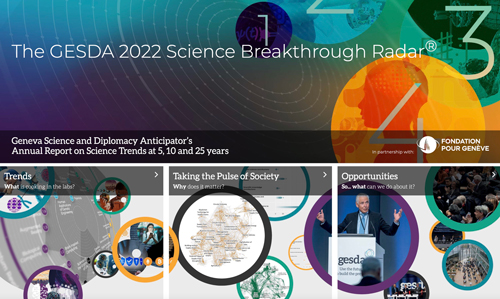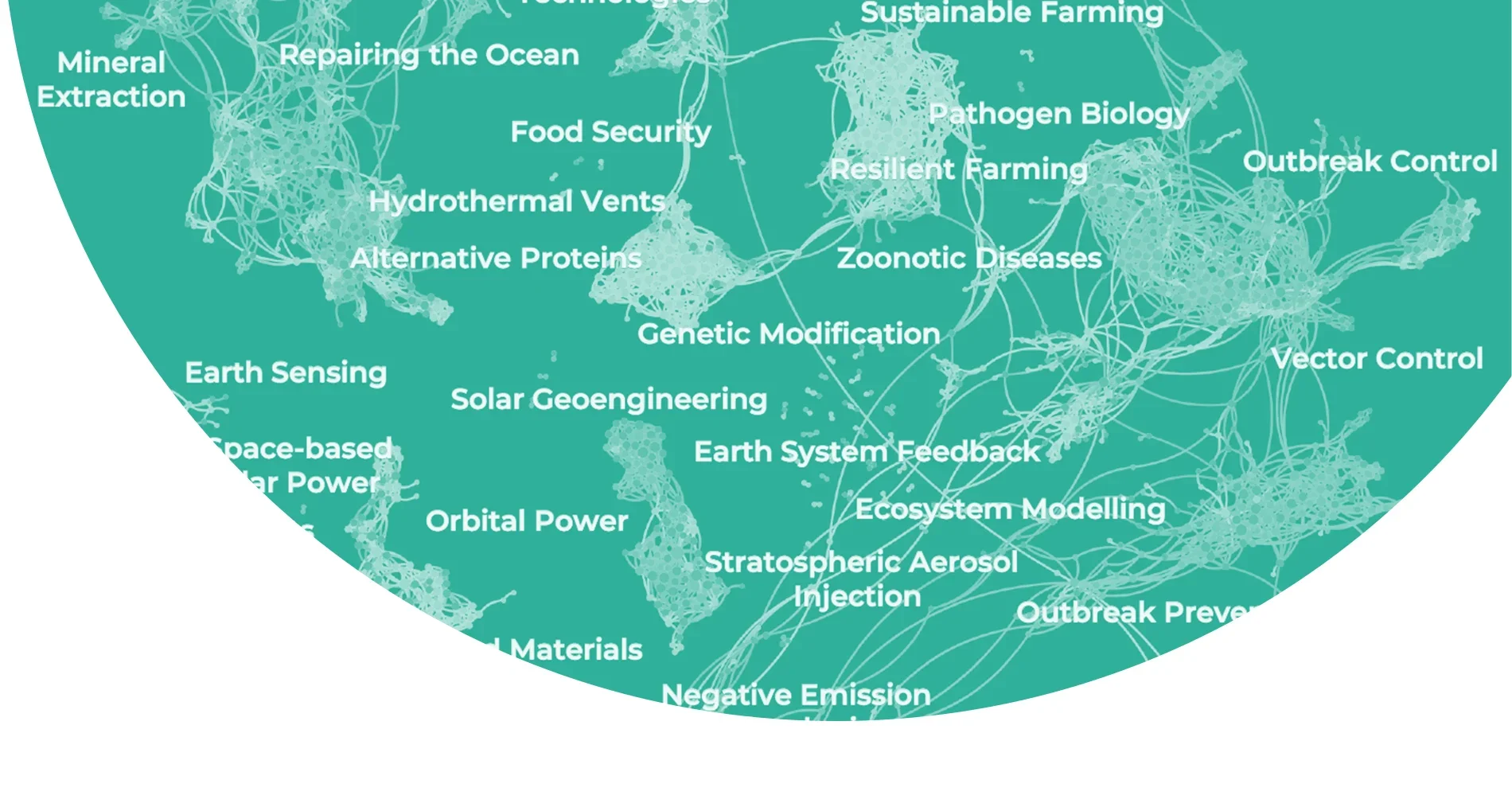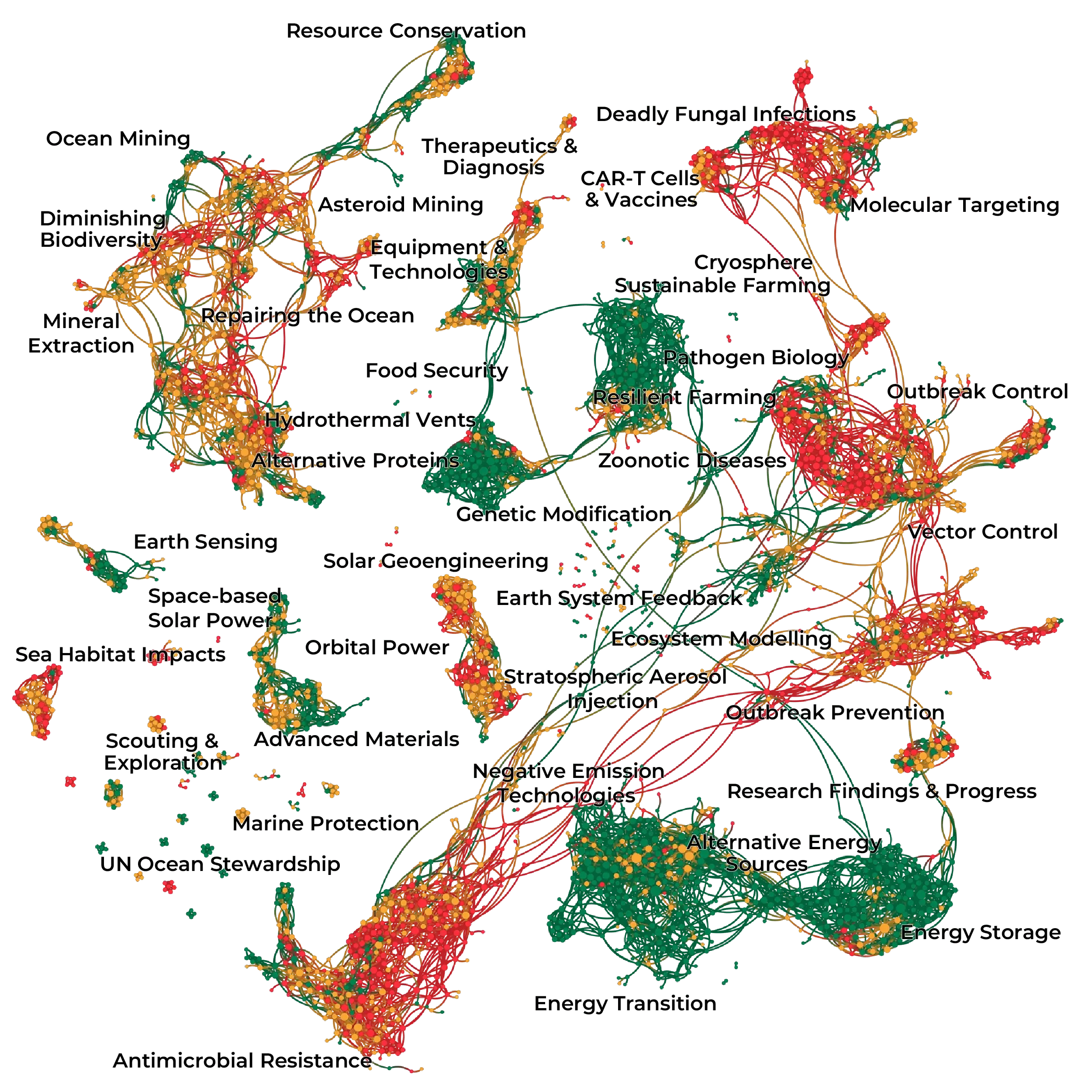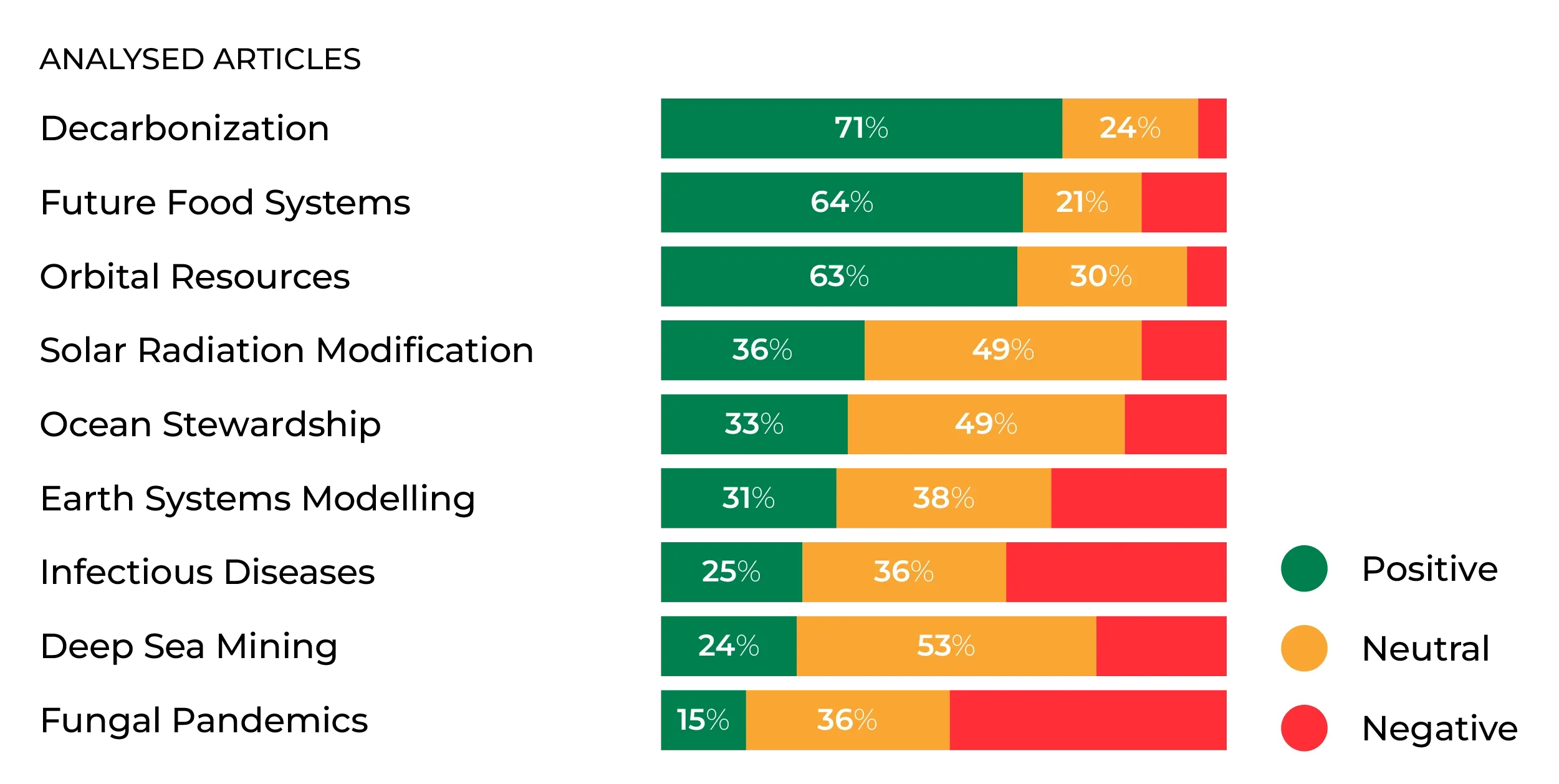Key insights:
Opinion towards Decarbonisation and Future Food Systems both show optimism for creating sustainable ecosystems and embracing innovative food solutions. It is also recognised that existing challenges and uncertainties still need to be addressed for successful implementation.
Orbital Resources and Earth Systems Modelling stories express interest in advancing space exploration and resource use. However, concerns persist regarding the ethical aspects, accuracy, and limitations of these scientific advances, particularly in understanding environmental changes.
Ocean Stewardship and Deep-Sea Mining stories emphasise the necessity of preserving marine ecosystems while addressing economic opportunities in deep-sea exploration. Both themes include the potential environmental impacts and implications for marine life that come with such exploration.
Stories about Solar Radiation Modification and Infectious Diseases exhibit mixed sentiments regarding the potential of geoengineering techniques and the development of improved prevention for diseases. Concerns over side effects and global preparedness for these changes underline the need for cautious optimism.
The negativity associated with Fungal Pandemics highlights growing unease about the possible impact on global health, emphasising the importance of taking proactive measures and conducting more research.
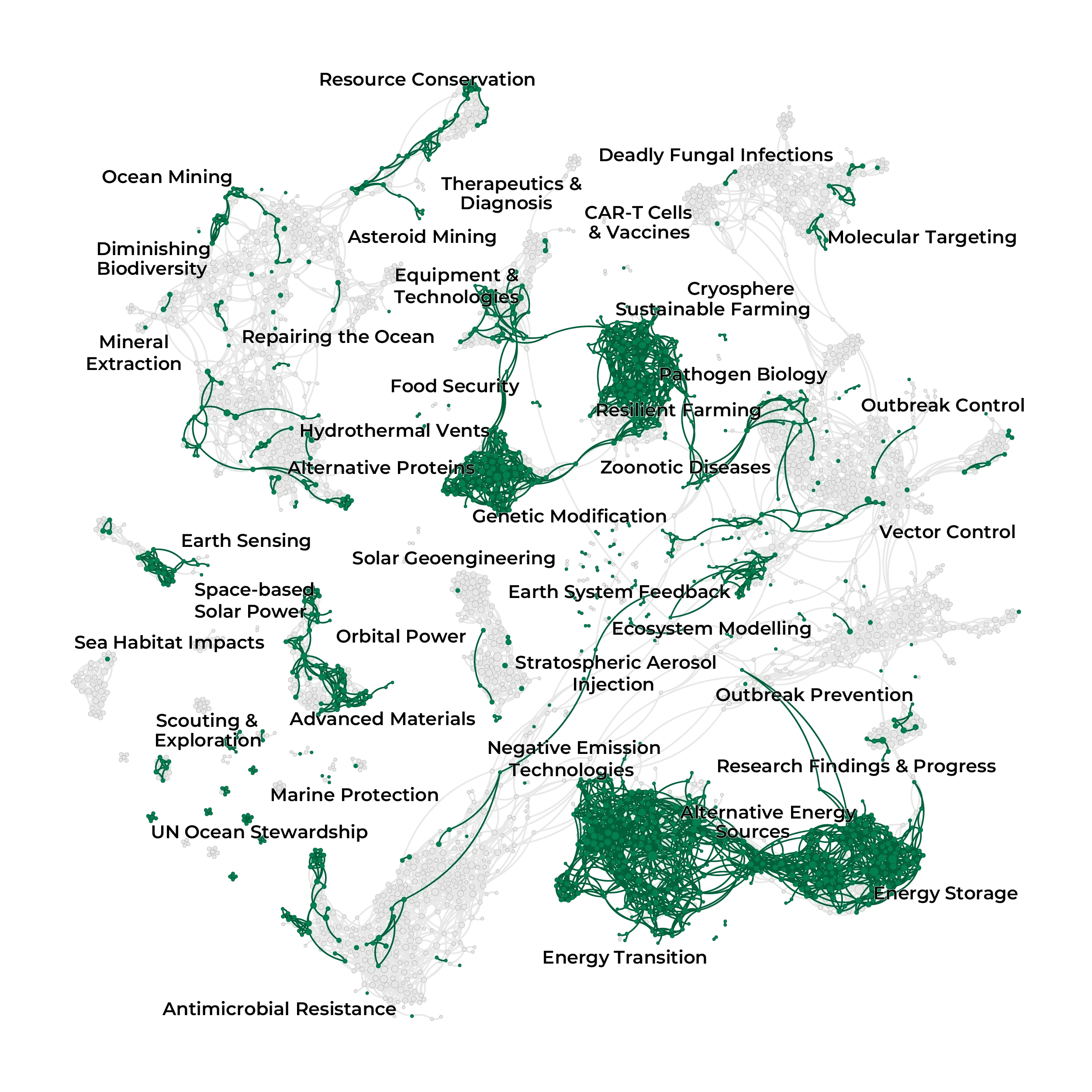
Positive sentiment is centered around:
- There is a generally positive trend in discussions about sustainable agriculture. Measures that prioritise environmental protection, economic viability, and social benefits are highlighted, and it is generally discussed that the production of alternative proteins is at the forefront of innovation in the food and beverage industry. News discussions and blogs about space-based solar power reflect growing optimism for the technology: beyond solving the issue of continuous power generation, this innovation is seen as a significant step towards curbing carbon emissions and promoting a sustainable future.
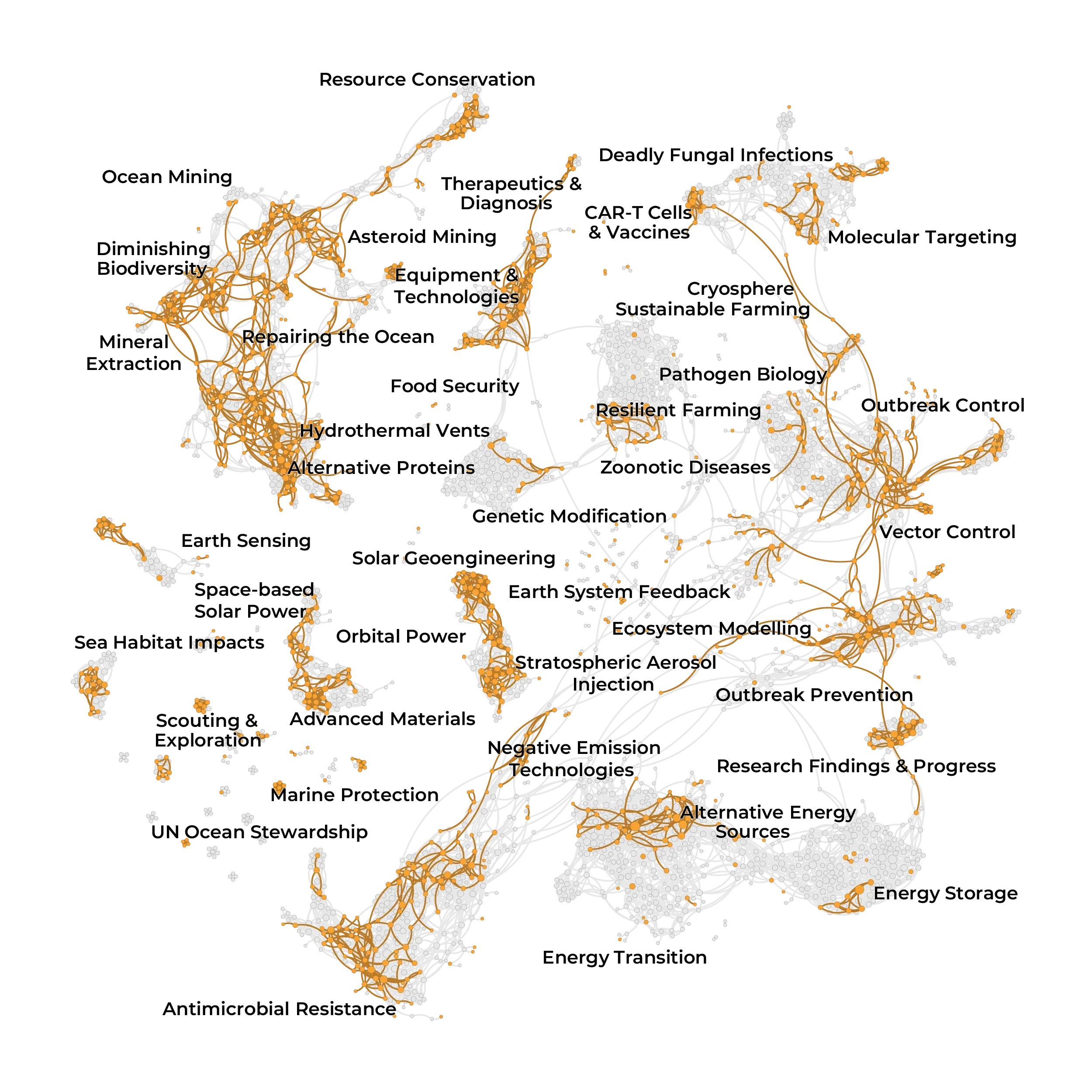
Neutral/mixed sentiment is centered around:
- The surge in demand for metals needed for electric vehicle batteries has thrust seabed mining into the spotlight, stirring a neutral sentiment in news coverage. While seen by some as an attractive solution, studies point to the serious ecological impacts, particularly on marine life. Public opinion varies, but the consensus favours developing robust regulations and conducting further research before commencing seabed mining. Population disruption stemming from the energy transition is under discussion, with a typically neutral sentiment in news coverage: the pivot towards clean energy and the consequent increase in demand for Energy Transition Metals (ETMs) may disrupt more communities globally than the reduced production of thermal coal.
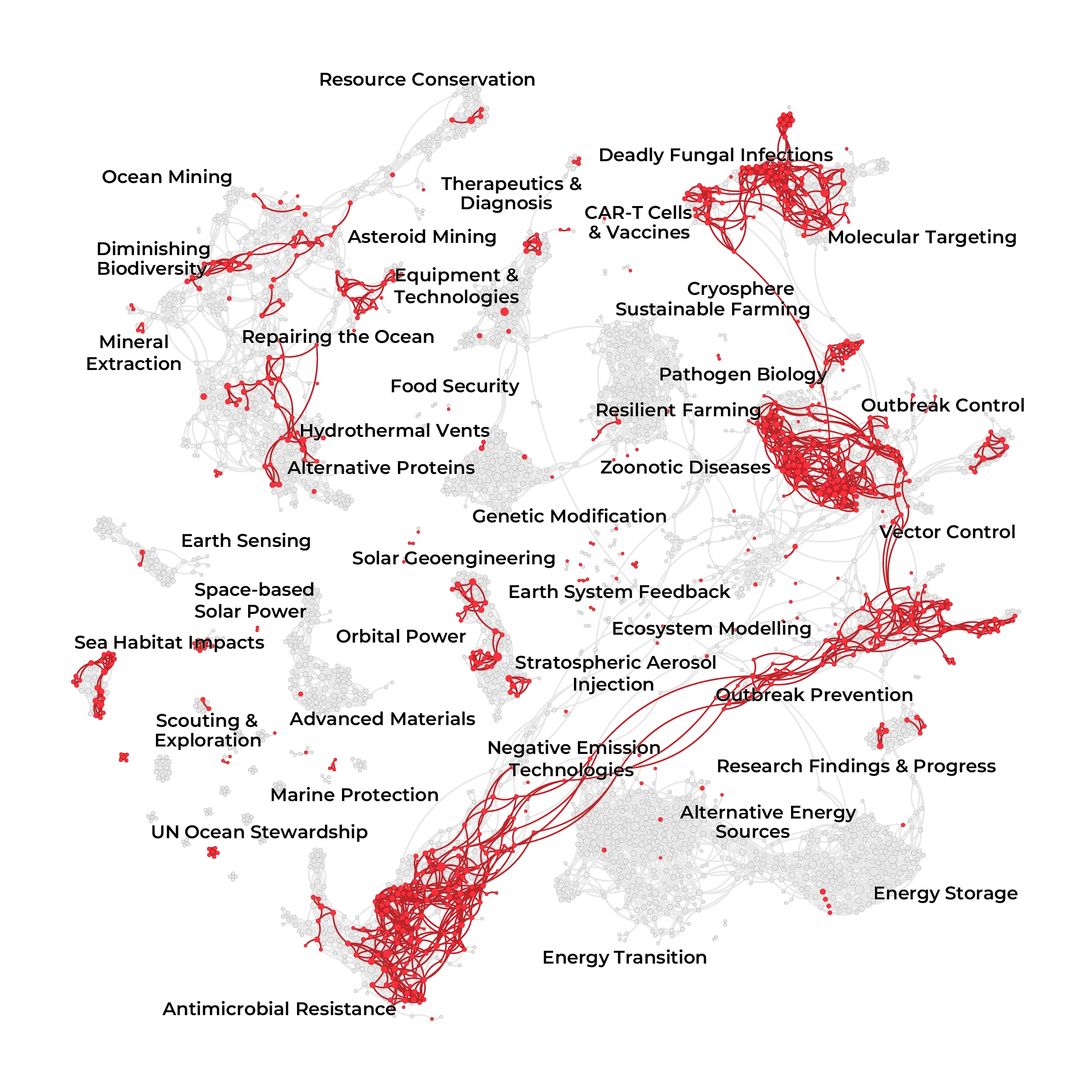
Negative sentiment is centered around:
- Negative sentiment surrounds the emerging issue of pharmaceutical pollution, a byproduct of human activity, which is significantly altering global environments and affecting wildlife dynamics, including disease spread. The issue of antimicrobial resistance (AMR) continues to generate significant negative sentiment in the media, as highlighted discrepancies across countries' measures create concerns. The growing prevalence of these diseases is typically attributed to the overuse and easy availability of antimicrobials, mainly in the agricultural sector. Stratospheric aerosol injection (SAI), a proposed climate intervention method, is often viewed with negative sentiment due to the unknown and potentially harmful consequences on the global climate system. While it's suggested that SAI could produce changes in many high-impact climate variables, critics emphasise the lack of understanding of SAI's impact. This uncertainty, coupled with the potentially irreversible effects of SAI deployment, drives much of its negative portrayal.
